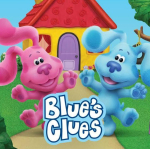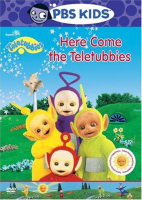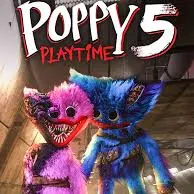Luca
Upon first hearing about Luca, the latest creative endeavor from Pixar Animation Studios, I was immediately intrigued. As a lifelong fan of Pixar's storytelling magic, the alluring promise of an Italian seaside adventure with a fantastical twist was enticing. The teaser visuals—vibrant colors dancing between sunlit coastal scenery and the shimmering underwater realm—added to the allure. It beckoned me into a world where the ordinary would meet the extraordinary.
The film is set in the picturesque town of Portorosso, inspired by the sun-dappled and culturally rich Italian Riviera. This setting alone, steeped in history and woven with charming details of daily life, offers a unique canvas for the story of Luca. The animation paints a warm and inviting backdrop that both children and adults can appreciate, setting the stage for an adventure rooted in deep-water dreams and land-walker realities.
The History Behind the Animation
At its core, Luca is a nostalgic homage to director Enrico Casarosa’s formative summers in Genoa, Italy. As these recollections transform into visuals, the film acts not merely as entertainment but as a vessel for human experience. The aspects of friendship, familial love, and the innate desire for adventure provide an inviting narrative for viewers. This authenticity is what drew me in, compelling me to explore beyond the animation’s picturesque locales.
Casarosa's directorial debut follows his significant contribution as a story artist in other beloved Pixar films like Ratatouille and Coco. Bearing a nostalgic blend of Guido-esque characters and personal insights, Luca builds bridges between sea monsters and humans, much like his own memories blend with the fictional. And so, as I sat down to watch, I was carried by an understanding that the film was imbued with genuine sentiments, both personal and universal.
Innovation through Simplicity
What separates Luca from previous Pixar films is its embrace of simplicity. While the studio is renowned for its complex narratives full of existential philosophy, this particular film opts instead to shift its focus inward. The plot orbits the innocent camaraderie between two boys—Luca and his newfound friend, Alberto—rendering a storyline concerning acceptance, identity, and growth. The gentle storytelling offers a refreshing departure from the cerebral exercises we’ve come to expect in Pixar’s lineup.
I was personally touched by how this simplicity didn’t translate to a lack of depth. Instead, it allowed the film to more masterfully depict its characters’ internal struggles and triumphs through deliberate pacing. The quiet introspection of Luca’s journey resonated because it provided a canvas for the audience’s own reflections—moments in our lives when stepping out of our comfort zones felt daunting yet necessary.
The Characters: Real yet Spectacular
The characters in Luca are exquisitely crafted with the kind of sincerity that Pixar has always excelled in. Luca, depicted by the voice of Jacob Tremblay, encapsulates innocence wrapped in wide-eyed wonder. His eagerness to explore beyond the known waters reflects a yearning that feels both nostalgic and boundless. My empathy was constantly engaged with Luca's internal narrative—a dance between curiosity and fear.
Alberto, voiced by Jack Dylan Grazer, functions as Luca’s spirited guide into the world of humans. His character, layered with bravado and mystery, may initially seem larger-than-life, but as the story unfolds, his own vulnerabilities and aspirations become evident. This makes him a relatable and endearing counterbalance to Luca's tentative nature. Together, the duo embarks on a beautifully imperfect journey toward self-discovery and belonging.
The Visual Feast that is Portorosso
Visually, Luca is nothing short of stunning. The animation's attention to detail, from rippling shadows in azure waves to cobbled streets bathing in golden sunlight, immerses viewers in the atmospheric splendor of Portorosso. These visual elements ground the fantastical sea monster tale into tangible experiences—much like visiting a dream compared to real vacation memories.
The film’s color palette brings forth an authentic sense of summer—a delightful blend of calming blues and effervescent oranges. The seaside village is filled with quaint architecture, brimming with personality, and steeped in cultural references. Even if I closed my eyes, the sound design—from the lapping waves to bustling marketplaces—adequately captures a timeless sense of life in the Mediterranean, taking me to that sun-drenched coast.
The Exploration of Identity
Underlying the delightful facade, Luca offers a profound exploration of identity and belonging. The film's narrative revolves around the theme of transformation, not only through the distinct physical metamorphosis of sea creatures into humans but also in the understanding of self. For Luca, transitioning between underwater and land acts as a metaphor for coming of age—testing limits, uncovering personal truths, and defying expectations.
Alberto’s character invites a different exploration of identity. His complicated bravado becomes a learning curve for Luca, shaping the young sea monster's experience of challenge and triumph. Their relationship beautifully illustrates how companionship often instigates self-discovery, reflecting the tender growth of leaving innocent impressions behind to embrace a fuller understanding of self.
The Power of Friendship
Central to the narrative is the theme of friendship, woven intrinsically into the fabric of the film. The relationship shared by Luca and Alberto is the heartbeat of the story. Inseparable from the complexities of identity, friendship in Luca is portrayed as pure and transformative—the understanding and support one finds among peers affirming pathways to growth.
Their dreams of owning a Vespa transcends the realm of childish fancy, symbolizing their mutual longing for freedom. As someone who remembers similar childhood dreams made among friends, I could not help but reflect on the importance of friendships in shaping our aspirations and self-perception. The film manages to stir those innocent, delicate memories, reminding us of the bonds that gently brave us through adversity.
My Personal Impressions
From the outset, Luca felt like a gentle breath of summer nostalgia—a picturesque depiction of friendship and adventure against the stunning shoreline of an Italian village. There were moments where I found myself not just watching but experiencing the film. The characters, both human and sea monsters, resonate with truths that traverse age and context.
I was particularly enamored by the film's honesty its inclination to render childhood joys and tribulations in vividly relatable hues. The simplicity of Luca's tale becomes a launchpad for introspection, anchoring me to my recollections of youthful exploration. The Italian Riviera, bathed in whimsical storytelling, became a realm of unrestrained authenticity—a symbolic jaunt into reverie and discovery.
About the Music and Sound
The music, under the direction of composer Dan Romer, complements the film’s visual narrative. It weaves seamlessly between haunting melodies and energetic tunes—a waltzy toccata of Italian passion. The score forages into emotional landscapes without overwhelming the narrative, guiding every character's minutiae—orchestrating highs, lows, and everything in between.
I particularly relished the rhythm of the Italian triathlon sequences—the bustling harmony of cycling, the rush of swimming, and the playful staccato of pasta consumption. These auditory experiences elevated the excitement and joyfulness, becoming mini-symphonies of narrative ebbs and flows. Here, sound becomes a companion to animation, heightening every emotion and enriching the whole.
Story, Culture, and Folklore
Beyond its narrative allegiance to coming-of-age themes, Luca sprinkles cultural folklore and marvels into its storyline. The sea monster mythos remains ancillary yet intriguing, creating tension and providing societal reflections as well. It allows children to engage in low-stakes engagement with the ideas of otherness and prejudice in approachable contexts.
Options for cultural interpretation abound, made palatable through the film's blend of humor and charm. The slice-of-life Italian setting doesn’t rely heavily on tropes alone but embraces delightful cultural distinctions that enrich the experience. By the film's conclusion, this mythos enhances the message of acceptance, encouraging dialogues concerning differences and shared dreams.
The Message of Acceptance
Most striking of all is Luca's gentle but consistent message of acceptance. The bonds formed between sea monsters and inhabitants of Portorosso are mirrored by the inherent struggle to find harmony. By the climax—without spoilers—the film strikes a chord in highlighting that true family and community are chosen and formed through understanding and love.
Parallel to Luca's acceptance of himself and his identity was my own reconnection to personal growth and friendships. It reminded me that change—often feared—fosters freedom. All consequences become a part of the journey worth embracing. It’s here that the film’s depth finds momentum, elevating family narratives into life-affirming tales.
Fluid Animations with Heartfelt Expressions
Technologically, Luca stands out for its immaculate and fluid animation. Every underwater sequence is paired with masterful visual storytelling, where characters drift between realms in a graceful ballet. The land-bound segments carry an equally joyful finesse, imbued with humor that feels instinctively physical—yet undeniably expressive.
What I found most captivating was how the animation captured nuanced facial expressions, with emphasis on the eyes, subtle movements, and the art of silence. Such mastery enables visceral, emotive storytelling, allowing viewers to understand sentiments even when dialogue recedes. Ultimately, this dexterity threads the narrative together, creating an unforgettable tapestry of whimsical authenticity.
Final Impressions on Plot Development
The pacing of Luca skillfully balances an accessible, deliberate unfolding alongside lively adventures. Breaking free from the constraints of accelerated beats, the plot offers time to breathe, lending audiences the opportunity to savor character revelations. This approach tactfully complements the film’s core—the connection of friendship, growth, and acceptance.
While some viewers may find moments predictable, they remain poignant. Each subsequent scene comfortably fits into the whole, a testament to the skill of crafting coherent storytelling through ostensibly simple plot devices. By layering these on the animation medium, the film offers different dimensions to explore, using the seemingly mundane as catapults for meaning.
The Ending: A Journey Fulfilled
As the credits rolled, I was left with an overwhelming sense of completion—a fulfillment derived not just from the joyous ending but from the voyage I took alongside the characters. Luca’s transformation becomes symbolic of every viewer’s experience—each grappling with boundaries, adversities, and dreams that find resonance in nuanced animation.
The finale masterfully ties the narrative threads together, finding harmony where once there was tension. It reassures that friendships formed are not lost and that courage reaped blossoms into limitless horizons. Luca’s heroic journey, filled with laughter and discoveries, enchants and ultimately offers a reminder that sometimes the most unforeseen paths lead us back to where we are meant to grow.
Conclusion
In reflecting on my experience with Luca, I am inclined to recommend it not only for its lush animation and story but for its ability to offer resonant memories and life lessons. Pixar’s storytelling prowess shines through the film’s simplicity, carved anew through director Enrico Casarosa’s vision and personal insights. It embraces familiar childhood fantasies and nuanced life realities—a delicate dance between dreaming and belonging.
Whether viewed by the eyes of a child or with the reflective wisdom of adulthood, Luca charms and captivates. It leaves rides on Vespa dreams and sunlit paths in our hearts—a gentle story of friendship and daring greatly. And when life waters call us to change, we remember Luca: that our origins remain part of who we are, yet our spirit bounds with wind-swept bravery unto endless seas and skies.
Screenshots

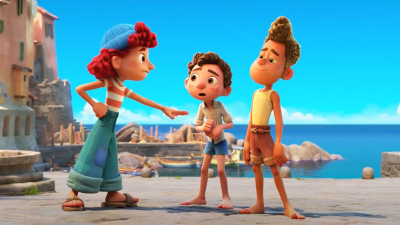
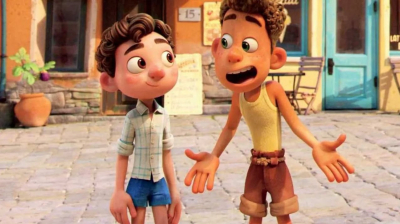
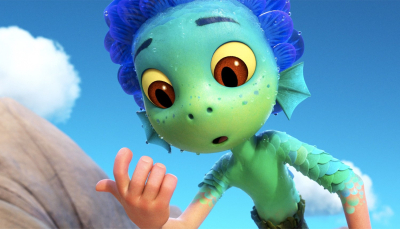
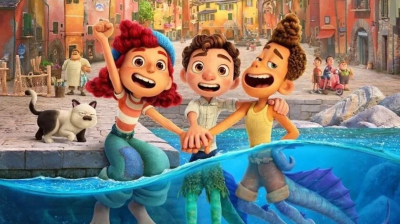
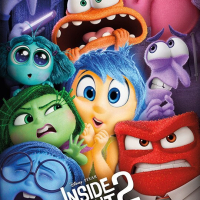





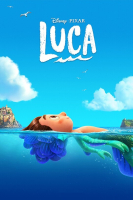
 How to watch
How to watch 


